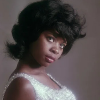Home » Jazz Musicians » Allen Toussaint
Allen Toussaint
Allen Toussaint (born January 14, 1938) is an American musician, songwriter and record producer and one of the most influential figures in New Orleans R&B. Many of Toussaint's songs have become familiar through their numerous cover versions, including "Working in the Coalmine", "Ride Your Pony", "Brickyard Blues", "Get Out My Life Woman", and "Everything I Do Gonna Be Funky". In the early 1960s he wrote and produced a string of hits for New Orleans R&B artists such as Ernie K-Doe, Irma Thomas, Art and Aaron Neville, The Showmen, and Lee Dorsey. Some of his songs from this period were published under the pseudonym Naomi Neville ("Ruler of My Heart", recorded by Irma Thomas, is one example; the song would go on to be recorded by Otis Redding under the title "Pain in My Heart".) In the 1970s he switched gears to a funkier sound, writing and producing for The Meters, Dr John, and the Wild Tchoupitoulas Mardi Gras Indians tribe. He also began to work with non-New Orleans artists such as Robert Palmer, Elkie Brooks, Solomon Burke, and Scottish Soul singer, Frankie Miller. He arranged horn music for The Band's 1971 album Cahoots, and arranged horn parts for their concert repertoire. Toussaint also launched his own solo career, which peaked in the '70s with the albums From a Whisper to a Scream and Southern Nights. It was during this time that he teamed with Labelle, and produced their highly acclaimed "Nightbirds" album from 1975, that spawned the Number One Hit, "Lady Marmalade" Two years later, Glen Campbell covered Toussaint's "Southern Nights" and carried the song to Number One on the Pop, Country and Adult- Contemporary Charts. Along with many of his contemporaries, Toussaint found that interest in his compositions was rekindled when his work began to be sampled by hip hop artists in the 1980s and 1990s. He was inducted into the Rock and Roll Hall of Fame in 1998. Toussaint grew up in a shotgun house in the New Orleans neighborhood of Gert Town, where his mother welcomed and fed all manner of musicians as they practiced and recorded with Allen. His friends often performed at a night club called "The Dew Drop", located on LaSalle street Uptown. This group of local musicians were known as the "Dew Drop Set".[1] In his early years Toussaint worked mainly for Joe Banashak's "Minit" label, but after that label was sold to its distributor, he teamed up with Marshall Sehorn, starting their own record label variously known as Tou-Sea, Deesu or Kansu.
Read moreTags
Allen Toussaint: American Tunes

by Jakob Baekgaard
The mighty river of American songs flows in many different directions: blues, gospel, jazz and funk are part of the muddy water that makes up the music. Pianist, composer, arranger and record producer, Allen Toussaint, who sadly passed away in 2015, was an important part of the ongoing legacy of American music. He was one of the architects of New Orleans R & B, but his musical horizon was much broader than just a single genre. More ...
Continue ReadingAllen Toussaint: American Tunes

by Mike Jacobs
When it comes to the New Orleans sound and its purveyors, drummers may be the most integral, but the most celebrated are perhaps the pianists. Longhair, Booker, Rebbenack, Cleary, and even Fats Domino are all acknowledged to be in that pantheon. And certainly the name Toussaint has long been counted among them as well but, outside of New Orleans, more so by those in the know than the general public. This is partly because throughout his career, Toussaint's preferred role ...
Continue ReadingAllen Toussaint: The Bright Mississippi

by Joel Roberts
Pianist, writer, producer and arranger Allen Toussaint can justifiably be called a living legend. A member of the Rock and Roll Hall of Fame, he helped define the New Orleans R&B sound of the '60s and '70s through his work with Lee Dorsey, Irma Thomas, The Meters and Dr. John, then went on to collaborate with rock giants like The Band, Paul Simon and Little Feat. He also produced the funk classic “Lady Marmalade" for LaBelle and wrote “Southern Nights," ...
Continue ReadingAllen Toussaint: The Bright Mississippi

by Mike Perciaccante
When asked about Allen Toussaint, Van Dyke Parks once said, “he's the greatest pianist alive, only no one knows it... including him." High praise from one legend to another. With The Bright Mississippi, Toussaint has finally released a jazz-oriented album. Though jazz-influences can be found on many of his rock/funk sides as well as in many of the songs that he has written (including “Whipped Cream," which was morphed into the theme from The Dating Game), arranged and produced, this ...
Continue ReadingAllen Toussaint and Preservation Hall Jazz Orchestra in London

by John Eyles
Allen Toussaint and Preservation Hall Jazz Orchestra The Barbican London, England June 4th, 2007
They say it is an ill wind that blows no-one any good. Well, Hurricane Katrina was certainly one of the illest winds ever to blow through New Orleans, leaving the city ruined and many thousands homeless. Allen Toussaint is one of those homeless, and is currently residing in New York City while his house is rebuilt. As for the ...
Continue ReadingAllen Toussaint, et al. / Amadee Castenell (NYNO Records: Allen Toussaint and Various Artists

by C. Michael Bailey
Bon Ton NYNO. Contemporary Louisiana music is alive and well and being projected by the New York-based label NYNO Records. NYNO was founded in 1995, the brainchild of radio syndicator Josh Feigenbaum and pianist, composer, arranger, producer par excellence Allen Toussaint. The stated goal of the label is... “to record and distribute the roots and blues-oriented music of New Orleans...painting a musical portrait of the city.” Considered here are the sampler A Taste of New Orleans and the specific artist ...
Continue ReadingAllen Toussaint & Friends: A New Orleans Christmas

by Jim Santella
The various artists that appear on this 1997 Christmas album make it a cross-genre collection of R&B, C&W, pop/rock, blues, and jazz items suitable for infusing that annual Christmas spirit. Lead vocalists for the lyric-oriented Yuletide favorites include Raymond Myles, Larry Hamilton, Tricia Boutte, Grace Darling, Wallace Johnson, and James Andrews.
With Allen Toussaint’s spirited piano accompaniment and a Satchmo-inspired trumpet introduction, James Andrews sings “Christmas in New Orleans." Andrews’ bright trumpet melodies and lively vocalizing warm the room, as ...
Continue ReadingNew Orleans Jazz Orchestra Returns From 3-Year Recording Hiatus With "Songs: The Music Of Allen Toussaint" On Storyville Records

Source:
Terri Hinte Publicity
The renowned New Orleans Jazz Orchestra reflects on the wide-ranging influence of the Big Easy’s own Allen Toussaint, the legendary composer, singer, pianist, and producer, with the March 29 digital release of Songs: The Music of Allen Toussaint on Storyville Records (physical release is set for April 19). The album features six songs by Toussaint and one associated with him, as well as two original tribute pieces. It also marks the NOJO leadership debut of drummer/artistic director Adonis Rose, who ...
read more
Allen Toussaint (1938-2015)

Source:
JazzWax by Marc Myers
Allen Toussaint, a highly influential pianist, songwriter and producer who wrote dozens of hit songs that many Americans know but are surprised to learn he wrote, died on Nov. 9 while on tour in Spain. He was 77. Allen was probably best known in New Orleans, where his lyrical and eclectic happy-time piano style rich in Mardi Gras syncopation was impossible to duplicate. Songwriting came naturally to Allen, as if waiting their turn to come through his fingers. As a ...
read more
Interview: Allen Toussaint

Source:
JazzWax by Marc Myers
Singer-songwriter Allen Toussaint has written dozens of hit songs. Many have what I call the Allen Toussaint bounce—a jumping New Orleans feel that's part blues and part zydeco. His hits include Mother in Law, Southern Nights, Whipped Cream, Get Out of My Life Woman, Working in the Colemine, What Do You Want the Girl to Do?, Sneakin' Sally Through The Alley and many more. [Photo above of Allen Toussaint in his old New Orleans neighborhood by Rush Jagoe for The ...
read more
Swingadelic: Toussaintville

Source:
JazzWax by Marc Myers
One of the most surprisingly imaginative CDs to cross my desk in some time is Swingadelic's Toussaintville (Zoho). The album—released today—pays tribute to the songs of Allen Toussaint [pictured], who turned 75 in January. The music is an intelligent and swinging fusion of big band jazz and soul-pop. The album not only skillfully reminds the listener of Toussaint's important contribution as a composer of top pop hits—Southern Nights, What Do You Want the Girl to Do, Sneaking Sally Through the ...
read more
Something Else! Interview: Allen Toussaint, Hall of Fame Singer-Songwriter and Producer

Source:
Something Else!
Allen Toussaint, fonky-fonky pianist, writer and producer of untold hit songs, Rock and Roll Hall of Famer and first-chair favorite son, makes his annual appearance this week at the 2012 New Orleans Jazz and Heritage Festival – a tradition, he says, “which I dearly, dearly love.” Then, he plans to resume a completely revitalized solo recording career alongside Joe Henry, who oversaw Toussaint’s swinging triumph Bright Mississippi a couple of years ago. In a career dating back to the 1950s, ...
read more
Allen Toussaint Live at KPLU

Source:
Groove Notes
Allen Toussaint performing live in our Seattle studios in front of a lucky group of KPLU Leadership Circle members on June 1, 2011. Justin Steyer / KPLU CLICK HERE FOR AUDIO Pianist, vocalist, producer and songwriting legend (and Rock n Roll Hall Of Fame inductee), Allen Toussaint stopped by the KPLU studios on June 1 and took us on a sweet and uplifting trip to New Orleans with his music. Mr. Toussaint has crossed many paths in his illustrious career ...
read more
Allen Toussaint is All Smiles at the Montreal Jazz Festival

Source:
All About Jazz @ Spinner
A standing ovation is a pretty great way to start a concert--and with more than 50 years of songwriting and recording to his credit, Allen Toussaint deserves nothing less. The warm welcome came at 6PM in a church basement just outside of the Montreal Jazz Festival grounds, and from there the evening unfolded like the best-kept secret of the night, if not the entire fest. Toussaint was in a chatty mood and roped his songs together with anecdotes from his ...
read more
New Orleans Jazz Musicians Perform at G-20 to Highlight Climate Change in Pittsburgh

Source:
Michael Ricci
NEW ORLEANS JAZZ MUSICIANS PLAY BEFORE G-20, DRAW ATTENTION TO CLIMATE CHANGE
Tonight, Wednesday, September 23, 2009 9:00 PM to 12 Midnight
The Andy Warhol Museum in Pittsburgh 117 Sandusky St. Pittsburgh, PA PITTSBURGH, PA -- The music and culture of New Orleans took center stage at the Andy Warhol Museum in Pittsburgh today ahead of the G-20 summit. In a gala event organized by the U.S. Climate Action Network (USCAN) and hosted by ...
read more
11th Annual Twin Cities Jazz Festival Set For June 18-20, 2009

Source:
Pat Courtemanche
Allen Toussaint, Esperanza Spalding, The New Standards and many more to perform at free outdoor concerts in Mears Park in Saint Paul.
St. Paul/Minneapolis, MN -- The jazz festival that almost wasn't has announced an exciting lineup for its 2009 edition. The Twin Cities Jazz Festival was so hard pressed to secure adequate sponsorship money for its 11th annual event that organizers were prepared to cancel the event in 2009 and attempt to return in 2010. Through eleventh-hour efforts and ...
read more


































